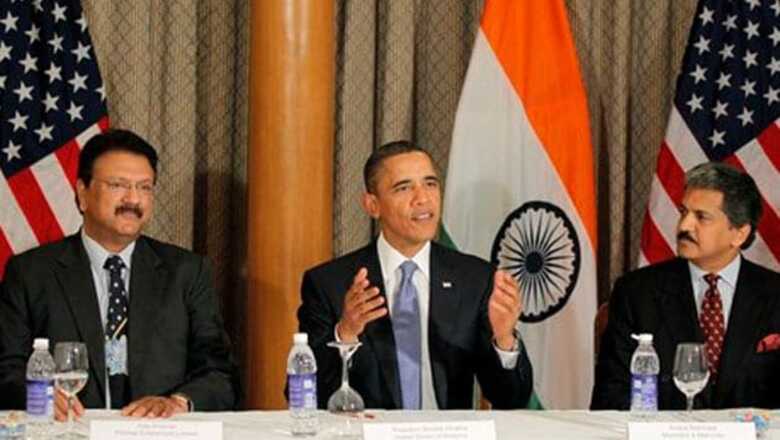
views
Mumbai: US President Barack Obama today sought reciprocity in trade and access to Indian market to allay the fears of Americans that the relationship was a one-way street.
"We want access to Indian markets. We want to sell in India... It's not unfair for US to say that if our economy is open, then the countries with whom we trade will have to change their terms," the President said.
His remarks came while interacting with students at St.Xaviers college here and in the backdrop of US companies seeking access to India's financial markets, retail and other sectors.
He, however, assured that the US would reciprocate India's efforts to strengthen trade ties.
Indo-US bilateral trade stood at USD 36.6 billion in 2009-10 and Obama yesterday hoped to double US exports in the next five years. US exports to India account for only two per cent of all the goods Washington ships out to the world.
Stating that the US has gone through the toughest two years following the financial meltdown and economic slowdown of 2008, he said India had weathered this crisis better than any other country.
"India is not just a rising power, it has already risen. Its economy has risen at a breathtaking rate... we look forward to a greater role for India at the world stage," he said, recalling the joint efforts between the two countries at
at a grouping of the world's 20 top economies (G20).
Obama said ever since his he could remember he had seen the US as a dominant economic power that could deal with the rest of the world on its terms.
"Now because of the rise of India, China and Brazil and some other nations, there is a real competition out there and potentially healthy. This is keeping the US on its toes, because I feel we still can compete," Obama said.
Only because the US was the world's largest economy and a huge market, others just could not come to sell their products and make it a one-way street, he said.
To a question related to his Democratic party's poll reversal, he said people in the US were frustrated with rising unemployment relative to several decades and the slow pace of progress.
On trade, he said without reciprocity, Americans would end up feeling it's a bad relationship. On the reason why he was travelling to Asia, Obama said: "I believe that the US will grow and prosper if we are trading with Asia, the fastest growing region of the world. We want access to your market. We think we have good products to sell, you think you guys have good products to sell to us. This can be a win-win situation."
Painting a picture of the US economy and the mood of the people, he said: "Unemployment in the US is very high now... so people are frustrated... one of the most wonderful things about democracy is that when people are not happy, they have a right to express their unhappiness."
Official data showed that US unemployment was at a high of 9.6 per cent. Yesterday, Obama announced private trade deals between US and Indian companies worth USD 10 billion and ones that would create over 50,000 jobs back home.
Obama said he would take up many of these issues during his meeting with Prime Minister Manmohan Singh for enhancing cooperation, which he said was sure to create a "win-win situation. So, I want to make sure we are here, because this will create jobs in the US and create jobs in India."
Stressing on a greater role for India on the global stage, he said: "Most of the work I did with Prime Minister Singh in the first two years in the G20, we were focussed in making sure that world financial system did not collapse and
stabilise the economy."
To a question on how US policies affect India, Obama said: "I actually think that the US has a enormous partner in India probably because we have so many Indian Americans because of the shared values that we have. India is going to be a critical partner with US in the 21st century. That was true when George Bush was President and that was true when Clinton was President. I don't think our firm belief is going to alter in a significant way."
As regards the challenges of globalisation, he said: "I think it is going to be a tug of war within the US between those who say globalisation is a threat and want to retrench and those who accept that we live in an open and integrated
world, which has challenges and opportunities.
"We have to manage those challenges and manage those opportunities but should not be afraid of them."
His remarks assume significance given his government's stand against tax breaks to companies that ship out jobs to low-cost destinations like India and increasing resentment in the US against outsourcing.



















Comments
0 comment